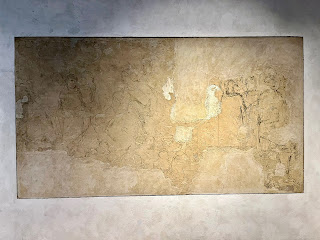From the Windmill to the Quantum Computer
//What distinguishes a QC from a classic (Newtonian) computer on you desk is the number of calculations it can do in parallel. Both QCs and NCs use binary arithmetic, but a NC employs bits which can be in only one state at at any given time. QCs, on the other hand, use qubits, which can be in more than one state simultaneously (superposition). So every time you add a qubit, the process scales geometrically. A QC with two qubits could run four calculations in parallel. A 1,000-qubit device could process more simultaneous calculations than there are particles in the observable universe. So far, only small-scale devices have been demonstrated, and many of these need to be kept in strictly defined conditions. One reason for this sensitivity is that qubits can maintain their quantum superposition only if they do not interact with other objects. And this is really hard to achive.//
The article continues illustrating four available alternatives, none of which is yet an obvious winner over the others. What I find intriguing is the fact that, sooner or later, we will be told that the mind is a QC. It happen with windmills (Leibniz) with the old PC (the Newtonian computer), with Neural Networks... surely QCs are fancy and high-tech enugh to be the next analogy in line. So, if you wish to anticipate history, try to think of an even more futuristic metaphor now, and you'll qualify as a visionary. What about the mind being a "society of QCs"?







I like to think that "Quantic" way is like to be in two thougts at the same time. Two compleatly oposite. Like positime negative, black white, I O (binari sistem). but instead of being I or O is both at the same time. But i think that is hard to reach i tihnk that could stop time. Thats relativity. yesterday i was thinking about escher trowght escher i found this blog i see that an quantic art. is to the perspercive of the renasense like einstein to newton. cubism of picasso is like a medium. i dont know if i lost you. but ill apreciate if you writeme to talk more about this. my email es mad_ader_@hotmail.com Thanks for your time...
ReplyDelete